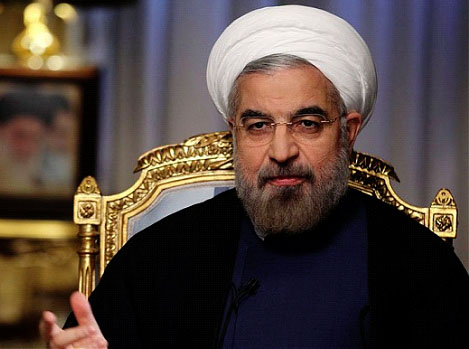WASHINGTON/ANKARA, (Reuters) – Three Iranian-Americans arrived in Germany after leaving Tehran yesterday in a prisoner swap following the lifting of most international sanctions on Iran under a deal U.S. President Barack Obama said had cut off Tehran’s path to a nuclear bomb.

In a sign of sustained readiness to track Iranian compliance with remaining United Nations curbs, the United States imposed fresh sanctions on 11 companies and individuals for supplying Iran’s ballistic missile programme. The Obama administration had delayed the step for more than two weeks during tense negotiations to free five American prisoners, according to people familiar with the matter. Iran conducted a precision-guided ballistic missile test last October, violating a U.N. ban.
“This is a good day because once again we are seeing what’s possible through strong American diplomacy,” Obama said at the White House. “These things are a reminder of what we can achieve when we lead with strength and with wisdom.”
Iranian President Hassan Rouhani hailed the nuclear deal as a “golden page” in Iran’s history and said the agreement could be used as a model to resolve other regional issues.
The lifting of sanctions and the prisoner deal considerably reduce the hostility between Tehran and Washington that has shaped the Middle East since Iran’s Islamic Revolution in 1979.
A Swiss plane took Jason Rezaian, the Washington Post’s Tehran bureau chief; Saeed Abedini, a pastor from Idaho; and Amir Hekmati, a former U.S. Marine from Flint, Michigan, as well as some family members, from Tehran to Geneva, Switzerland.
Shortly afterward, the three left for a U.S. military base in Germany, arriving there later yesterday, a U.S. State Department official said.
One more Iranian-American released under the same swap, Nosratollah Khosravi-Roodsari, was not aboard the aircraft. A fifth prisoner, American student Matthew Trevithick, was released separately on Saturday, a U.S. official said.
Several Iranian-Americans held in U.S. prisons after being charged or convicted for sanctions violations have also been released, their lawyers told Reuters on Sunday.
In a statement after the release of Rezaian, Washington Post Publisher Frederick Ryan said: “We are relieved that this 545-day nightmare for Jason and his family is finally over.
Rezaian was arrested in July 2014 and sentenced in November to a prison term. Iranian prosecutors had accused him of espionage, charges the Post had dismissed as “absurd.”
Naghmeh Abedini, the wife of the Idaho pastor, said in a Facebook post on Sunday that Obama called her after her husband was flown out of Iran.
“I am thankful for our president and all of the hard work by the White House and State Department in making this happen,” said Abedini, who has appeared with U.S. Republican presidential candidate Ted Cruz, a U.S. senator and a harsh critic of the Iran nuclear deal.
The prisoner deal was the culmination of months of contacts, secret talks and legal maneuvering that came close to falling apart on at least one occasion.
Speaking to parliament yesterday, Rouhani, a pragmatic cleric elected in 2013 on promises to end Iran’s years of sanctions and isolation, said he looked forward to an economic future less dependent on oil exports.
The exports are nevertheless likely to jump now that the United States, European Union and United Nations have scrapped the sanctions in return for Tehran complying with the deal to curb its nuclear ambitions, which Tehran says were peaceful.
But Rouhani noted bitter opposition to the lifting of economic curbs from Israel, some members of the U.S. Congress and what he called “warmongers” in the region – an apparent reference to some of Iran’s Gulf Arab adversaries, not least Saudi Arabia.
